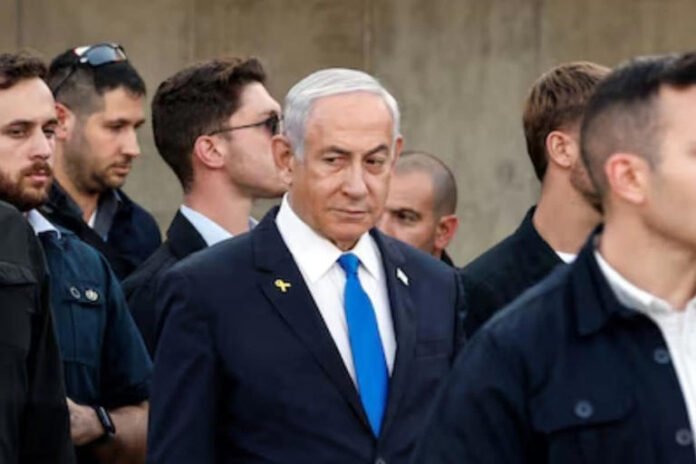Israeli Prime Minister Benjamin Netanyahu is facing a serious legal challenge after the International Criminal Court (ICC) issued a warrant for his arrest. The warrant stems from alleged violations of international law, including actions during his tenure in relation to the Israeli-Palestinian conflict. While Netanyahu has dismissed the ICC’s decision as politically motivated, the development has stirred significant global reactions and raised questions about his ability to travel abroad without facing arrest.
The ICC Warrant: Background and Allegations
The ICC, based in The Hague, issued the warrant citing alleged war crimes and human rights abuses in the occupied Palestinian territories. These include actions linked to settlement expansion, the demolition of Palestinian homes, and military operations in Gaza. The charges align with longstanding accusations that Israeli policies in these areas violate international law, particularly the Fourth Geneva Convention.
Netanyahu has rejected the ICC’s jurisdiction, arguing that Israel is not a party to the Rome Statute, the treaty that established the ICC. His government has called the warrant a “blatant attack on Israel’s sovereignty” and accused the court of bias.
Where Netanyahu Faces Arrest Risks
The ICC’s arrest warrant means Netanyahu could potentially be detained if he visits countries that recognize the court’s jurisdiction. As of 2024, 123 countries are state parties to the Rome Statute. Notable nations where he could face arrest include:
- European Union Countries: The majority of EU nations, including France, Germany, and Spain, are ICC members. These countries are legally obligated to cooperate with the court, including enforcing arrest warrants.
- South Africa: A vocal critic of Israel’s policies toward Palestinians, South Africa has a history of advocating for ICC actions against alleged human rights violators.
- Latin America: Nations like Argentina, Brazil, and Chile have often taken strong stances on international justice and may not hesitate to act on the warrant.
- Japan and South Korea: As ICC members in Asia, they could enforce the warrant if Netanyahu were to visit.
However, some member states may choose to avoid confrontation by not enforcing the warrant, citing diplomatic sensitivities.
Netanyahu’s Travel Dilemma
The ICC warrant puts Netanyahu in a precarious position, complicating his ability to engage in international diplomacy. While key allies like the United States, Israel’s most significant supporter, are not ICC members and would not act on the warrant, Netanyahu’s freedom to travel to many other regions is now severely curtailed.
The situation mirrors similar cases, such as the ICC warrant issued for Russian President Vladimir Putin earlier in 2023. That warrant effectively limited Putin’s international engagements, as countries adhering to ICC mandates risked violating their obligations if they failed to act.
Implications for Israel’s Foreign Policy
The arrest warrant also casts a shadow over Israel’s diplomatic efforts, particularly in seeking normalization deals with Arab nations under the Abraham Accords. Netanyahu’s leadership has been pivotal in forging these agreements, but his legal troubles may deter nations wary of aligning too closely with a leader under ICC scrutiny.
For countries that have traditionally maintained neutrality on the Israel-Palestine issue, Netanyahu’s legal predicament could influence their foreign policy. States seeking closer ties with Israel might face increased domestic and international pressure to reassess their positions.
Global Reactions
The ICC’s decision has drawn mixed reactions worldwide.
- Support from Human Rights Groups: Organizations like Amnesty International and Human Rights Watch have welcomed the warrant, arguing that it marks a step toward accountability for alleged crimes in the Palestinian territories.
- Condemnation from Israel and Allies: Israel’s government has denounced the ICC’s actions, with U.S. officials expressing concern over the politicization of international justice.
- Cautious Responses from Other Nations: Some countries have refrained from taking sides, emphasizing the importance of dialogue to resolve the Israel-Palestine conflict.
Netanyahu’s Response
True to his combative political style, Netanyahu has vowed to fight the charges, labeling the ICC as a “kangaroo court” influenced by anti-Israel sentiments. He remains steadfast in his denial of wrongdoing, portraying himself as a defender of Israel’s sovereignty and security.
The ICC arrest warrant against Benjamin Netanyahu represents a watershed moment with potential ramifications for global politics, international law, and Israel’s standing in the world. While the warrant’s enforcement remains uncertain, it undeniably complicates Netanyahu’s political and diplomatic maneuvering.
As the world watches, the case raises critical questions about the balance between pursuing justice for alleged war crimes and navigating the complexities of international diplomacy. Whether Netanyahu will face arrest or find ways to sidestep the warrant will significantly shape the discourse on accountability and power in international relations.
